
Easy Steps to Help Improve Your Credit Score
When you plan on applying for a loan, your credit score will be used by potential creditors or lenders to determine if you qualify. The ratings are an indication of the level of risk you are to the creditors. Since these financial institutions don’t recognize you personally, your credit background and credit score play a big part in determining if you’re eligible to get a loan.
A score of more than 700 is considered great credit, but anything below 601 equates to bad credit risk. The risk intensity of an individual’s financial status can be managed using the steps below to improve one’s chances of getting a loan.
Avoid Late Bill Payments
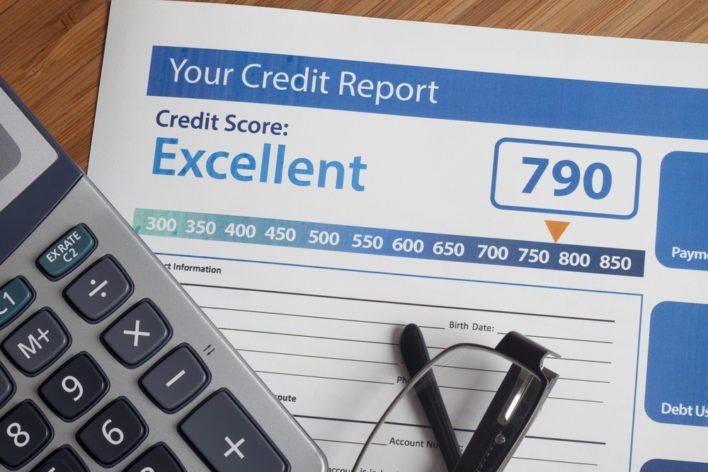
Among the known ways of boosting your credit score is clearing your bill when due. Your payment background accounts for 35% of your score. You can easily use your smartphone to clear your bills. You also have the option of setting auto-payment to help you make the bill payments on time. On the same smartphone, you can find various applications to assist you in budgeting as well.
Avoid Paying Minimum Charges
Get used to the habit of paying on time and, if possible, make sure the amount is more than the minimum required. This technique will help in minimizing your debt load. In the case that you have more than a single debt balance, make larger payments on one account and maintain paying minimum charges on the other accounts. You will be able to focus on clearing your debt more comfortably.
Make an Effort to Clear Your Debt

Rather than move your funds around from account to account, try and clear any pending debts on all the accounts you own. Another significant contributor to your score is the number of funds owed matched to the credit balance available. The available amount is known as an open credit utilization rate. You need to try and not use your overall credit limit. Creditors and lenders do a thorough analysis of a borrower’s utilization rate.
Review Your Credit Reports for Any Errors
A simple yet ignored step. The majority of clients do not review their credit reports. The problem with such a habit is that minor errors may be included in your records and affect your financial flow. When you go through your financial reports, you will be able to identify any inaccuracy and make an immediate inquiry for corrections to be made. This way, you keep your account safe. The inaccuracies can make a negative impact on your score without you realizing it hence the pre-caution.
Once you put these tips into work, you will start noticing a change in your financial reports.…



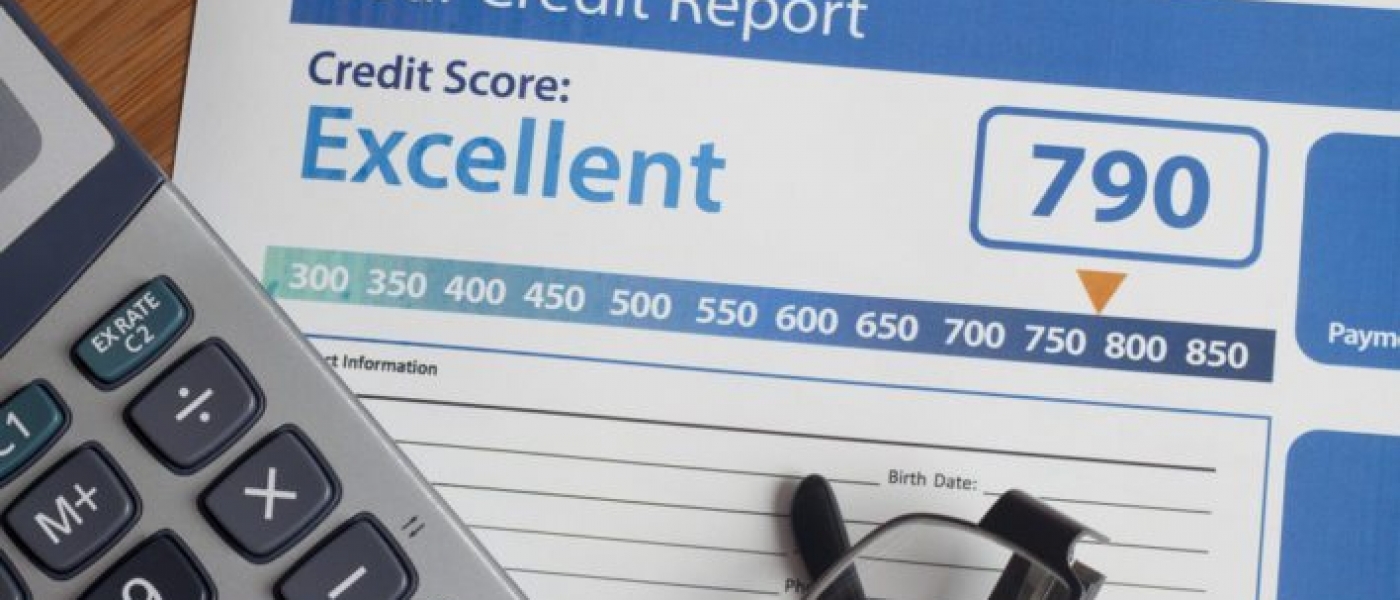


 Transparency
Transparency



 You should develop the notion that investing in the stock market is a game, not in the sense that it requires a good fortune to win, but in the sense that it involves two possible outcomes. In some cases, you will get profit while in other cases, you will most likely run into losses. Winning and losing is part of investing in the stock market making it look like a sport.
You should develop the notion that investing in the stock market is a game, not in the sense that it requires a good fortune to win, but in the sense that it involves two possible outcomes. In some cases, you will get profit while in other cases, you will most likely run into losses. Winning and losing is part of investing in the stock market making it look like a sport. Just like a game, if you are not prepared psychologically to take up the challenges associated with the stock market, you might opt out or make unsound decisions that can lead to significant losses. Investing in the stock market requires discipline as well as readiness to follow the investment strategy you have adopted consistently without falling for any impulsive thoughts that might distract and lead you to losses. You should consider your psychological alertness to allow you make sound decisions based on the market analysis and investment plan. Your success is dependent upon how ready you are to remain robust, consistent, and admissible of the possible results.
Just like a game, if you are not prepared psychologically to take up the challenges associated with the stock market, you might opt out or make unsound decisions that can lead to significant losses. Investing in the stock market requires discipline as well as readiness to follow the investment strategy you have adopted consistently without falling for any impulsive thoughts that might distract and lead you to losses. You should consider your psychological alertness to allow you make sound decisions based on the market analysis and investment plan. Your success is dependent upon how ready you are to remain robust, consistent, and admissible of the possible results.



 arison online before approaching an insurance company. For you to get a cheap car insurance, there are some things that you should have in mind when looking for a company to do business with.
arison online before approaching an insurance company. For you to get a cheap car insurance, there are some things that you should have in mind when looking for a company to do business with. insurance companies will reward you for being a careful driver. They do this especially if you are young. An insurance company will install a spy device to monitor how you are driving. You will then be rewarded for safe driving.
insurance companies will reward you for being a careful driver. They do this especially if you are young. An insurance company will install a spy device to monitor how you are driving. You will then be rewarded for safe driving.
 professionals can advise you on how to channel your investments and best ways of integrating personal finance into your business. More to this, they are in a position of advising you on ways to minimize extraneous spending and anything that might be hurting your business.
professionals can advise you on how to channel your investments and best ways of integrating personal finance into your business. More to this, they are in a position of advising you on ways to minimize extraneous spending and anything that might be hurting your business. Every organization should have a sound accounting and financial system in place. This is not an exemption to small businesses. With a good accountant, you can be sure of having this. An accountant will inform you of the best and the most recent accounting systems. This way, you can be certain of having your financial books and reports presented acceptably.
Every organization should have a sound accounting and financial system in place. This is not an exemption to small businesses. With a good accountant, you can be sure of having this. An accountant will inform you of the best and the most recent accounting systems. This way, you can be certain of having your financial books and reports presented acceptably.



 If you are considering taking out a quick cash loan, you have numerous options online. All you need to do is to find a reliable loan provider, and you can submit your application through the Internet. Once it is approved, the money will be transferred to your account electronically. With this, you will be able to save your time and effort.
If you are considering taking out a quick cash loan, you have numerous options online. All you need to do is to find a reliable loan provider, and you can submit your application through the Internet. Once it is approved, the money will be transferred to your account electronically. With this, you will be able to save your time and effort.


 Extras
Extras
 Planning is a major role for the success of all business endeavors. The most important aspect is financial planning. A business ought to know how much money they have so that they know which things should be done first according to their priorities. For this planning to be done, accounting information is needed.
Planning is a major role for the success of all business endeavors. The most important aspect is financial planning. A business ought to know how much money they have so that they know which things should be done first according to their priorities. For this planning to be done, accounting information is needed. For a business to run properly, they ought to budget for the money they have. Budgeting will help them in carrying out their functions. For budgeting to be done well, there should be financial information needed which is a result of accounting. Budgeting will help in the allocation of funds to the business departments. If the funds available are not enough, they also organize on how to source the funds.
For a business to run properly, they ought to budget for the money they have. Budgeting will help them in carrying out their functions. For budgeting to be done well, there should be financial information needed which is a result of accounting. Budgeting will help in the allocation of funds to the business departments. If the funds available are not enough, they also organize on how to source the funds.
 in both international and national options. The international ones are known as exotic ones. There are following types and are briefly discussed in paragraphs below.
in both international and national options. The international ones are known as exotic ones. There are following types and are briefly discussed in paragraphs below. are a bit different as an investor is betting on a given stock will fall or rise within sixty-second period.
are a bit different as an investor is betting on a given stock will fall or rise within sixty-second period.

 Sadly, this is only a myth considering that all investments carry significant risks. From experience, even the most skilled and experienced advisors cannot guarantee you of success. They only increase your chances of
Sadly, this is only a myth considering that all investments carry significant risks. From experience, even the most skilled and experienced advisors cannot guarantee you of success. They only increase your chances of 
 You need to make sure that you are choosing a company that has earned some level of reputation.
You need to make sure that you are choosing a company that has earned some level of reputation. ed premiums
ed premiums
 result of good and steady income. You need to know the various aspects of life insurance if you want to be successful in this field. The agents are also known as sales agents. Just like other salespersons, insurance agents are sales persons of a company.
result of good and steady income. You need to know the various aspects of life insurance if you want to be successful in this field. The agents are also known as sales agents. Just like other salespersons, insurance agents are sales persons of a company. vary depending on your hard work and customers you acquire. If you sell more, you are bound to earn more. As an agent, you need to be aware of the market conditions quite well. This will help you guide the customer as required. If a customer is looking for affordable insurance prices, the insurance agent must work to provide the customer with what he or she wants.…
vary depending on your hard work and customers you acquire. If you sell more, you are bound to earn more. As an agent, you need to be aware of the market conditions quite well. This will help you guide the customer as required. If a customer is looking for affordable insurance prices, the insurance agent must work to provide the customer with what he or she wants.…
 ers have the expertise and know where to look to get you the best deal. Hiring an expert can help save a lot of time that you could have used looking for a mortgage package that meets your needs. While working with a new lender, you may have to pay fees such as appraisal fee and processing fee. A mortgage broker helps you negotiate with the lender to waive some of these charges. As such, this can save you a significant amount of money. Besides, the broker knows where to look for discounts and offers for a cheaper package.
ers have the expertise and know where to look to get you the best deal. Hiring an expert can help save a lot of time that you could have used looking for a mortgage package that meets your needs. While working with a new lender, you may have to pay fees such as appraisal fee and processing fee. A mortgage broker helps you negotiate with the lender to waive some of these charges. As such, this can save you a significant amount of money. Besides, the broker knows where to look for discounts and offers for a cheaper package.


 To lower your car insurance premium rate lowered after license suspension is checking if you can get discounts on the policy. Also, ensure you take defensive driving course since it helps you in getting the discount.
To lower your car insurance premium rate lowered after license suspension is checking if you can get discounts on the policy. Also, ensure you take defensive driving course since it helps you in getting the discount.
 that require researching. The tips are as follows: The first one is fixed rate mortgage in which the monthly payments and the rate of interest remain constant for a predetermined period, in most case, between two and five years. In this category, other terms may be available, but the lender fixes the rate of interest so that any increase or fall in the rates on the market does not affect your mortgage.
that require researching. The tips are as follows: The first one is fixed rate mortgage in which the monthly payments and the rate of interest remain constant for a predetermined period, in most case, between two and five years. In this category, other terms may be available, but the lender fixes the rate of interest so that any increase or fall in the rates on the market does not affect your mortgage. The aspect of cost varies from one facility to another. However, some of the typical mortgage costs and fees include application and administration fee, product fee, broker fee, early redemption charges (ERCs), withdrawal fee, mortgage account fee, high lending charge, and money transfer charge. Consider picking a lender with minimal costs as possible to help you save in the process.…
The aspect of cost varies from one facility to another. However, some of the typical mortgage costs and fees include application and administration fee, product fee, broker fee, early redemption charges (ERCs), withdrawal fee, mortgage account fee, high lending charge, and money transfer charge. Consider picking a lender with minimal costs as possible to help you save in the process.…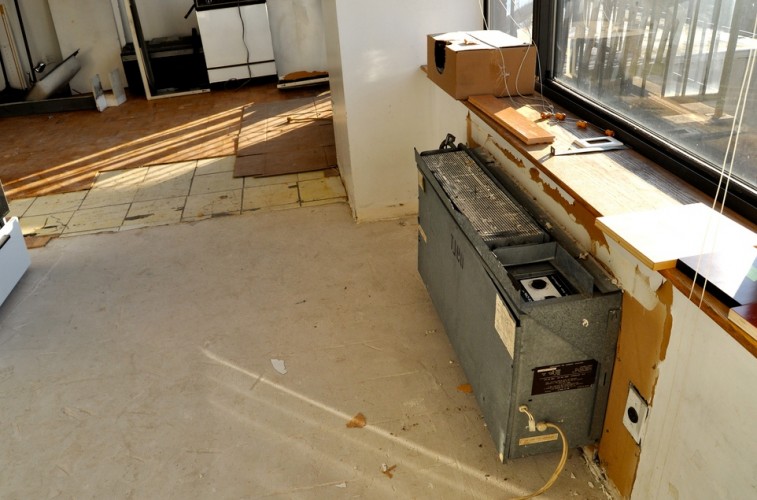
 guarantee that your home contractors will finish the job they are supposed to do according to your specifications. If ever they fail to do the expected job, the contractor bond issued by the agency will provide compensation or a payout to the homeowner.
guarantee that your home contractors will finish the job they are supposed to do according to your specifications. If ever they fail to do the expected job, the contractor bond issued by the agency will provide compensation or a payout to the homeowner. When it comes to choosing the best contractor bond, you should always look for these important factors:
When it comes to choosing the best contractor bond, you should always look for these important factors:
 A student loan benefits a lot of students who are financially incapable of shouldering their expenses when they go to college. After you graduate from college, you have six months leeway before you are obliged to start repaying your debt. Paying a student loan may become a burden especially for those people who have low income. Raising a family and supporting everyday living with a not-so-good income is indeed hard if you have a debt that you need to pay off. And so, student loan forgiveness options were established to help out borrowers.
A student loan benefits a lot of students who are financially incapable of shouldering their expenses when they go to college. After you graduate from college, you have six months leeway before you are obliged to start repaying your debt. Paying a student loan may become a burden especially for those people who have low income. Raising a family and supporting everyday living with a not-so-good income is indeed hard if you have a debt that you need to pay off. And so, student loan forgiveness options were established to help out borrowers. the remaining balance of your student debt forgiven after making updated payments for up to 25 years.
the remaining balance of your student debt forgiven after making updated payments for up to 25 years. pursuing education, and so, this type of forgiveness option was formed to reach out especially those who have low income.
pursuing education, and so, this type of forgiveness option was formed to reach out especially those who have low income. Attorneys have spent a lot of money just to finish their college education, but there is a huge percentage of unemployment among lawyers. And so, some states like Florida are granting loan forgiveness. This forgiveness option’s main focus are the lawyers who fall under the low-income bracket.
Attorneys have spent a lot of money just to finish their college education, but there is a huge percentage of unemployment among lawyers. And so, some states like Florida are granting loan forgiveness. This forgiveness option’s main focus are the lawyers who fall under the low-income bracket.
 Mandurah. The reason for this is that you will not be an expert in the real estate market. There are, however, people and companies that specialize in the real estate market. They will be an invaluable asset to you during your quest to either buy or sell a house.
Mandurah. The reason for this is that you will not be an expert in the real estate market. There are, however, people and companies that specialize in the real estate market. They will be an invaluable asset to you during your quest to either buy or sell a house. When you go looking for houses, it is advisable to take a home inspector with you. These are professionals who will look at the house and all its nooks and cranny’s to check if there are any major flaws. You can follow their advice on whether to buy or pass on that particular property.
When you go looking for houses, it is advisable to take a home inspector with you. These are professionals who will look at the house and all its nooks and cranny’s to check if there are any major flaws. You can follow their advice on whether to buy or pass on that particular property.
 loans, instant personal loans are easier to obtain and have no security issues when you borrow from the reputable lenders. Fundamentally, you will only need to provide the lender with your personal information relating to your bank accounts and your employment; the lender will then verify this information and determine its accuracy.
loans, instant personal loans are easier to obtain and have no security issues when you borrow from the reputable lenders. Fundamentally, you will only need to provide the lender with your personal information relating to your bank accounts and your employment; the lender will then verify this information and determine its accuracy. The bottom line
The bottom line
 articular age group. Several companies now offer value for money life polices to the elderly who can maintain a decent bill of health. The insurance industry today is also more streamlined which makes polices for seniors more affordable.
articular age group. Several companies now offer value for money life polices to the elderly who can maintain a decent bill of health. The insurance industry today is also more streamlined which makes polices for seniors more affordable. surance policies for seniors. You can start off by looking for multiple quotes on life policies that are being sold in your neighborhood. There are many sites on the Internet that deal with these life products.
surance policies for seniors. You can start off by looking for multiple quotes on life policies that are being sold in your neighborhood. There are many sites on the Internet that deal with these life products.

 specialist accepting insurance can mean that you will not be required to pay cash for exams and other routine services.
specialist accepting insurance can mean that you will not be required to pay cash for exams and other routine services.
 should never take it as a mere gamble and make random predictions because you will never win with that kind of perception. Instead, you must be equipped with a strong foundation and knowledge about investing. Know the pros and cons. This way, you will be able to come up with a good strategy to win. As they always say, “you will never know if you do not take the risk”. Taking the risk but with a proper strategy will give you a higher chance of winning.
should never take it as a mere gamble and make random predictions because you will never win with that kind of perception. Instead, you must be equipped with a strong foundation and knowledge about investing. Know the pros and cons. This way, you will be able to come up with a good strategy to win. As they always say, “you will never know if you do not take the risk”. Taking the risk but with a proper strategy will give you a higher chance of winning. IMPOSSIBLE?
IMPOSSIBLE?
 and has the potential to be financially rewarding. You will need to do a lot of research, be patient and exercise self-restraint when dealing in the Forex market. Let us look at a few ways where you can gain knowledge of this trading platform.
and has the potential to be financially rewarding. You will need to do a lot of research, be patient and exercise self-restraint when dealing in the Forex market. Let us look at a few ways where you can gain knowledge of this trading platform. Keeping a record
Keeping a record
 professional to work with. First, you should ask your family and friends for recommendations. This will be of help if they have used services of mortgage advisors in the past. If you do not want others to know your mortgage needs, you may consider using this tip.
professional to work with. First, you should ask your family and friends for recommendations. This will be of help if they have used services of mortgage advisors in the past. If you do not want others to know your mortgage needs, you may consider using this tip. with the application process. Moreover, they offer an excellent service for any person buying houses. The only difference between a mortgage broker and advisor is the expertise and training required to carry out the job.
with the application process. Moreover, they offer an excellent service for any person buying houses. The only difference between a mortgage broker and advisor is the expertise and training required to carry out the job.
 does not only help you guarantee you obtain all the clarifications to any inquiries, yet also serves to determine if they are the appropriate broker for you. A broker should not find any inquiry unneeded and also ought to be willing to take the time to answer your questions, assisting you make an informed decision on whether this is the best selection for you.
does not only help you guarantee you obtain all the clarifications to any inquiries, yet also serves to determine if they are the appropriate broker for you. A broker should not find any inquiry unneeded and also ought to be willing to take the time to answer your questions, assisting you make an informed decision on whether this is the best selection for you. Ensure you ask them what the complete value of the mortgage will certainly be. While you could just require $100,000, by the time the loan rates and also costs are included, you will be paying considerably more. Once more this will certainly change based on the lender and the loan interest rates they supply, but with some indicator you could recognize how much debt you are getting involved in. You can also know whether you prepared to handle such a large burden.
Ensure you ask them what the complete value of the mortgage will certainly be. While you could just require $100,000, by the time the loan rates and also costs are included, you will be paying considerably more. Once more this will certainly change based on the lender and the loan interest rates they supply, but with some indicator you could recognize how much debt you are getting involved in. You can also know whether you prepared to handle such a large burden.
 on how to do this, there is a general benchmark that you could consider when budgeting to help you do things right. Below are some valuable steps to help you budget your monthly expenses efficiently.
on how to do this, there is a general benchmark that you could consider when budgeting to help you do things right. Below are some valuable steps to help you budget your monthly expenses efficiently. With your overall income in mind, move to the second step and characterize your expenses as either needs or wants. In every household, bills normally take the biggest chunk of income and, therefore, fall under needs since we cannot do without paying them. If you have
With your overall income in mind, move to the second step and characterize your expenses as either needs or wants. In every household, bills normally take the biggest chunk of income and, therefore, fall under needs since we cannot do without paying them. If you have  what you can strike out without jeopardizing your life. For example, you can survive without any complications if you opt to cook your own meals as opposed to eating out. Try to come up with a plan that will allow you eat healthy while saving more money in the process. You should also come up with proper plans that will help you eliminate wastage as much as possible.
what you can strike out without jeopardizing your life. For example, you can survive without any complications if you opt to cook your own meals as opposed to eating out. Try to come up with a plan that will allow you eat healthy while saving more money in the process. You should also come up with proper plans that will help you eliminate wastage as much as possible.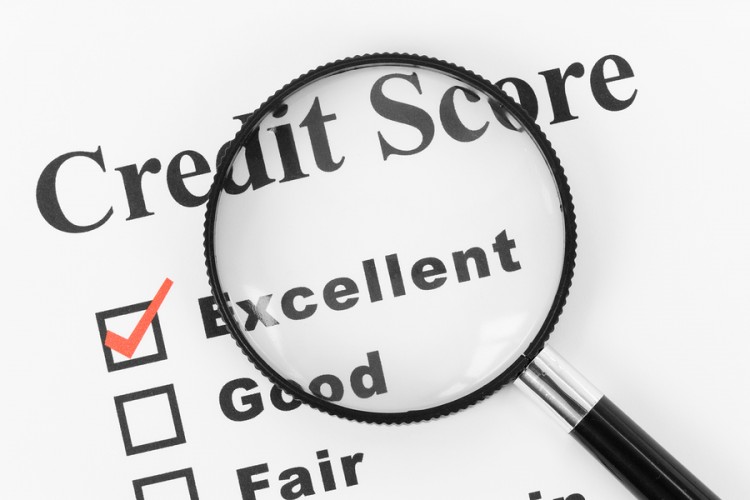

 Paying your bills on time will have a positive impact on your credit score; this refers not only to your credit cards and loans but any and all bills you might have. Even a miniscule library fine once left unpaid, could eventually find its way to your credit report, causing harm to your score. To keep your credits core intact, endeavor to consistently pay your bills on time.
Paying your bills on time will have a positive impact on your credit score; this refers not only to your credit cards and loans but any and all bills you might have. Even a miniscule library fine once left unpaid, could eventually find its way to your credit report, causing harm to your score. To keep your credits core intact, endeavor to consistently pay your bills on time.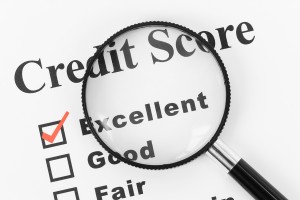 despite the noteworthy impact it can have on your credit score. The simple fact is this: every time you apply for a credit card or loan, your credit score takes a hit, albeit a small one. You are encouraged to apply moderation when it comes to applying for new credit.
despite the noteworthy impact it can have on your credit score. The simple fact is this: every time you apply for a credit card or loan, your credit score takes a hit, albeit a small one. You are encouraged to apply moderation when it comes to applying for new credit.